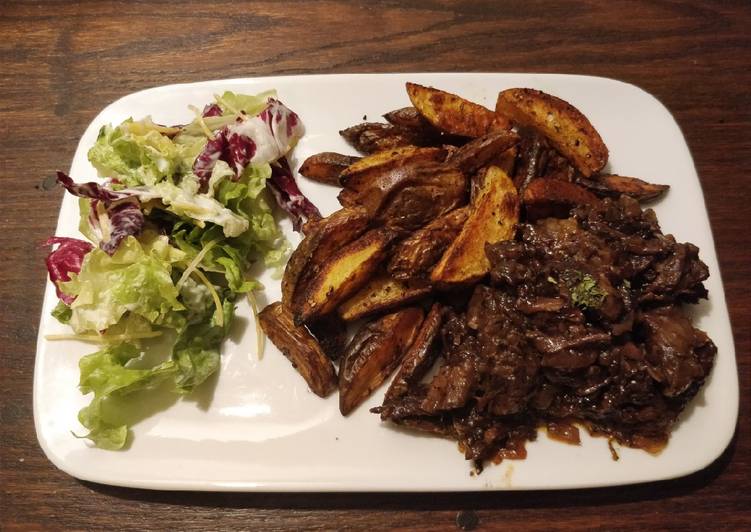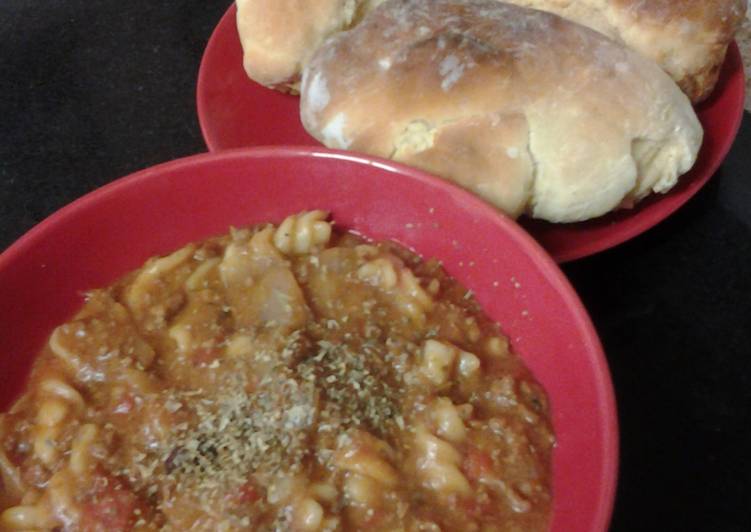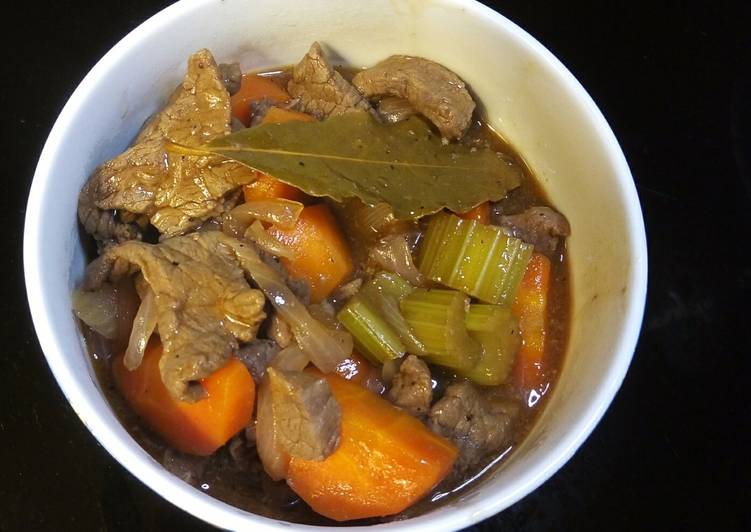
Hello everybody, it’s Drew, welcome to our recipe site. Today, we’re going to make a special dish, 'indonesian' beef stew. It is one of my favorites. This time, I will make it a bit tasty. This will be really delicious.
'Indonesian' beef stew is one of the most well liked of recent trending foods on earth. It is simple, it is fast, it tastes yummy. It’s enjoyed by millions daily. 'Indonesian' beef stew is something that I have loved my whole life. They’re fine and they look fantastic.
Empal gentong beef stew recipe can be cooked by yourself. Complete with explanations simple and easy to understand. This meal is from Cirebon, West Java.
To get started with this recipe, we have to first prepare a few ingredients. You can cook 'indonesian' beef stew using 12 ingredients and 12 steps. Here is how you cook it.
The ingredients needed to make 'Indonesian' beef stew:
- Make ready 2 small onions
- Get 1 glove of garlic
- Make ready 2 tbs butter
- Take 400 g beef, rib or other stew cuts
- Get 100 ml red wine
- Prepare 100 ml water
- Take 5 tbs ketjap (or soy sauce)
- Make ready 3 thyme springs (or 1tbs dried thyme)
- Take 2 bayleafs
- Prepare 4 cloves
- Prepare 2 tbs tomato ketchup
- Prepare 1 tbs potato starch (or general binding agent)
Spicy and rich Malaysian/Indonesian beef stew made with beef, spices and coconut milk. Rawon, an incredible Indonesian beef stew. Another one of the traditional Indonesian dishes, originally from eastern Java, is rawon, a black colored beef stew. How to Cook Beef Rendang (Coconut Milk Spicy Beef Stew).
Instructions to make 'Indonesian' beef stew:
- Roughly chop the onions and peel the garlic.
- Season the beef generously on both sides with salt and pepper.
- On medium heat melt some butter and start cooking the onions and the garlic. Use a garlic press, or mince the garlic.
- When the onions are halfway there, make room for the beef. You could do this in stages, but why bother…
- Brown the beef on both sides. Render out as much fat as you can.
- Pour the ketjap over the meat and give it a minute to boil and let it flavor the beef. Don't let it evaporate completely though. Don't worry if it is too much or too little, you can adjust for salt with the final seasoning.
- From the side of the pan, add the wine and the water. It should just cover the meat, depending on the size of the pan.
- Add the spices and the tomato ketchup and stir till combined.
- Cover and let simmer for at least 4 hours. Check every hour or so for liquid, and add water if it appears to become dry. Also turn the beef over to help even cooking. It may fall apart already, that is fine.
- After this time break up the beef into chunks of your desired size. And remove the thyme springs and bayleafs.
- Mix the potato starch with a teaspoon of cold water and mix it up, before stirring it through the stew. Taste and add salt and pepper to taste.
- Serve with fries, potatoes, rice or just plain. And don't forget to eat some vegetables as well.
Beef rendang is an Indonesian spicy dish and no wonder the cooking is similar to our local dishes because Filipinos also have Indonesian. Trova immagini stock HD a tema Indonesian Beef Stew On Black Bowl e milioni di altre foto, illustrazioni e contenuti vettoriali stock royalty free nella vasta raccolta di Shutterstock. Rendang is a traditional spicy beef dish popular in Malaysia, Indonesia and other parts of South East Asia. Chef Rich Harris shows you how to make it in this episode of Asian Bites. Translations of the phrase BEEF STEW from english to indonesian and examples of the use of "BEEF STEW" in a sentence with their translations Translation of Beef Stew in Indonesian.
So that is going to wrap this up with this special food 'indonesian' beef stew recipe. Thank you very much for your time. I am confident you can make this at home. There is gonna be interesting food at home recipes coming up. Remember to save this page on your browser, and share it to your family, friends and colleague. Thanks again for reading. Go on get cooking!

